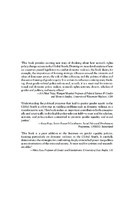Negotiating Gender Equity in the Global South
The Politics of Domestic Violence Policy
| dc.contributor.editor | Nazneen, Sohela | |
| dc.contributor.editor | Hickey, Sam | |
| dc.contributor.editor | Sifaki, Eleni | |
| dc.date.accessioned | 2019-10-17 14:33:40 | |
| dc.date.accessioned | 2020-04-01T10:54:05Z | |
| dc.date.available | 2020-04-01T10:54:05Z | |
| dc.date.issued | 2019 | |
| dc.identifier | 1004189 | |
| dc.identifier | OCN: 1100491422 | en_US |
| dc.identifier.uri | http://library.oapen.org/handle/20.500.12657/25894 | |
| dc.description.abstract | The fact that women have achieved higher levels of political inclusion within low- and middle-income countries has generated much speculation about whether this is reaping broader benefits in tackling gender-based inequalities. This book uncovers the multiple political dynamics that influence governments to adopt and implement gender equity policies, pushing the debate beyond simply the role of women’s inclusion in influencing policy. Bringing the politics of development into discussion with feminist literature on women's empowerment, the book proposes the new concept of ‘power domains’ as a way to capture how inter-elite bargaining, coalitional politics, and social movement activism combine to shape policies that promote gender equity. In particular, the book investigates the conditions under which countries in sub-Saharan Africa and South Asia have adopted legislation against domestic violence, which remains widespread in many developing countries. The book demonstrates that women’s presence in formal politics and policy spaces does not fully explain the pace in adopting and implementing domestic violence law. Underlying drivers of change within broader domains of power also include the role of clientelistic politics and informal processes of bargaining, coalition-building, and persuasion; the discursive framing of gender-equitable ideas; and how transnational norms influence women’s political inclusion and gender-inclusive policy outcomes. The comparative approach across Uganda, Rwanda, South Africa, Ghana, India, and Bangladesh demonstrates how advancing gender equality varies by political context and according to the interests surrounding a particular issue. | |
| dc.language | English | |
| dc.relation.ispartofseries | Routledge ISS Gender, Sexuality and Development Studies | |
| dc.subject.classification | thema EDItEUR::J Society and Social Sciences | en_US |
| dc.subject.other | Women in development | |
| dc.subject.other | developing countries | |
| dc.subject.other | family violence | |
| dc.subject.other | gender equity | |
| dc.subject.other | politics | |
| dc.title | Negotiating Gender Equity in the Global South | |
| dc.title.alternative | The Politics of Domestic Violence Policy | |
| dc.type | book | |
| oapen.relation.isPublishedBy | 7b3c7b10-5b1e-40b3-860e-c6dd5197f0bb | |
| oapen.relation.isbn | 9781351245623 | |
| oapen.imprint | Routledge | |
| oapen.pages | 262 | |
| oapen.remark.public | 21-7-2020 - No DOI registered in CrossRef for ISBN 9780815372356 | |
| oapen.identifier.ocn | 1100491422 |

